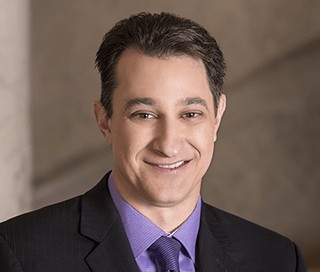


Lt. Gov. Brad Little made it known during the final Republican gubernatorial debate held days ago: If he’s elected, he’s probably gonna raise your taxes. Credit Little for honesty, though it is a stunning admission for a Republican candidate facing, traditionally, the state’s most conservative voters in the May 15 primary.
“If you think we’re going to resolve our transportation funding issue without any new money, you’re whistling Dixie,” Little argued as his opponents, Boise businessman Tommy Ahlquist and U.S. Rep. Raul Labrador, listened.
Little declared, “We’re going to have to put more money into transportation.”
In 2009, Labrador, then a state representative, helped crush Gov. Butch Otter’s transportation tax increase proposal. This defeat led Otter to form a highway infrastructure task force, which was helmed by Lt. Gov. Little. His task force concluded that tax and fee increases were the way to go. In 2015, the Legislature abided to the tune of $100 million. Lawmakers also agreed to add surplus general fund revenue into the transportation account, in addition to funds from gasoline taxes and vehicle registration fees.
But it’s not enough, Little said in the recent debate. More money from fuel taxes, registration fees, and the state’s general fund is needed to fix and repair Idaho’s roads and bridges.
Labrador and Ahlquist have both promised me they won’t raise taxes to deal with transportation. In the debate, Ahlquist said too much money is being wasted in the state transportation department. That thinking is possibly informed by the fact that transportation officials have been busy peddling a $30.5 million highway overpass for eastern Idaho wildlife to use.
Labrador said Idaho’s transportation problems are exacerbated by the fact that the state keeps offering tax breaks to big businesses to move here. This has the compounded effect of moving more people to the state while siphoning off the tax base that could be used to help address growth. Labrador noted, the money to address transportation problems is already there, without needing to raise taxes.
Labrador and Ahlquist have both acknowledged that the state has transportation woes. In urban Idaho, the problem is highways and surface roads that are congested and can no longer accommodate the influx of newcomers. In rural Idaho, the challenge is to fix a backlog of deteriorated roads and bridges. But, both say, there’s more to the answer than simply assenting to another tax hike.
They’re right. An executive branch that does a better job prioritizing state expenditures would make a huge difference. In 2011, the state’s general fund was $2.5 billion. Today, it’s about $3.7 billion. Within that $1.2 billion increase in tax revenue, the money exists to address infrastructure, provided the money isn’t squandered or misdirected. During the last six fiscal years, FY12 to FY18 (projected), total state spending on General and Dedicated Funds (which includes roads) has increased by an average rate of over 7 percent per year.
Little’s statement during the debate that tax increases are part of the solution reminds me of Walter Mondale in 1984. At the Democratic Convention in San Francisco, Mondale vowed, “Mr. Reagan will raise taxes, and so will I. He won’t tell you. I just did.”
Similarly, one could argue Little is simply being crystal clear about his plans and Labrador and Ahlquist won’t talk tax increases in advance of the Republican primary lest they anger voters. Sure, Little’s adversaries have made promises, but everyone knows candidate promises can be broken as quickly as they are made.
What we do know is that Little’s record on taxes is clear. As a state senator in 2003, he voted to raise the sales tax and tobacco taxes. In 2015, he supported Otter’s higher gasoline taxes and vehicle registration fees as they made their way through the Legislature. Now, Little says he backs higher taxes to solve Idaho’s transportation problems. We have every reason to believe he means what he says.


